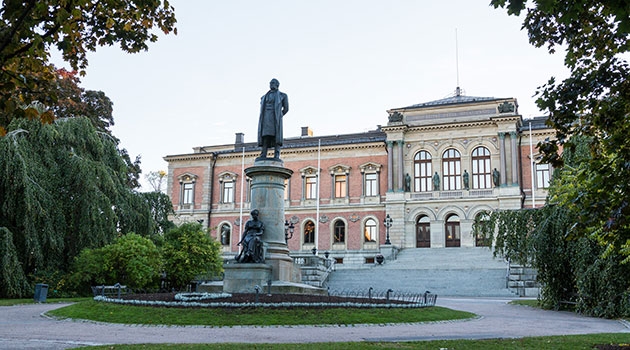International meeting on measures to combat antibiotic resistance

In connection with the meeting, parts of an art exhibition on the theme of antibiotic resistance will be displayed in the University Main Building.
On 9–10 May, a forum will be held in Uppsala on the topic of antimicrobial resistance (AMR) within the framework of the Swedish Presidency of the Council of the EU. The meeting will be hosted by Uppsala University and ReAct – Action on Antibiotic Resistance. The discussion will focus on the global action needed to combat antibiotic resistance.
“What we want to achieve is a dialogue between stakeholders with the aim of overcoming obstacles that could stand in the way of the global fight against antibiotic resistance. One aspect to be discussed is how we can more clearly describe and create an understanding that a broad societal transition is required. Antibiotic resistance is so much more than a ‘medical’ challenge,” notes Anna Sjöblom, Director of ReAct Europe.
“We also want to make progress in terms of including antibiotic resistance in other important global processes, such as the broader agenda to prevent and manage pandemics which has gained momentum after COVID-19. We need to further mobilise collective action and strengthen global leadership, and we hope the meeting will generate more ideas on how to do this.”
The importance of interdisciplinarity
Anders Hagfeldt, Vice-Chancellor of Uppsala University, also emphasises the importance of drawing knowledge from several areas.
“This is an important meeting. Antibiotic resistance is one of the major complex societal challenges that we must address if the world is to develop sustainably. There are no simple solutions, but knowledge from different areas is needed. As a University, we have a very important task to provide education and research, and we see a great need for interdisciplinary approaches and perspectives,” he notes.
The meeting will involve various types of stakeholders, many of whom do not usually meet in the same types of meeting and context. There will be a mix of national and international experts, civil society representatives and policy makers.
“This group is smaller than those at the usual major conferences and the EU high-level meeting on AMR to be hosted by Sweden in March. Despite this, we have managed to gather participants from more than 20 countries in Europe, Asia, Africa and Latin America, the majority of which are low and middle-income countries,” adds Sjöblom.
Preparation for UN meeting
Participants in the forum will work together to identify key steps and concrete targets for the global fight against antibiotic resistance. One of the objectives of the discussions is to prepare for the UN’s High-Level Meeting on Antimicrobial Resistance to be held in 2024, continues Sjöblom:
“This is the second time ever that a meeting on antibiotic resistance is being held at the highest political level of the UN. The latest was in 2016. The high-level meeting needs to result in ambitious, clear and measurable objectives and practical steps on how to move forward, and we at ReAct want to help shape them!”
In connection with the meeting, parts of an art exhibition on the theme of antibiotic resistance will be displayed in the University Main Building. The exhibition, entitled “Are We There Yet?”, is a collaboration between students in Visual Communication at Beckmans College of Design, researchers at the Beijer Institute and Svenskt Tenn.
The meeting is organized by Uppsala University and ReAct, with support from the The Beijer Foundation and the Swedish Research Council.
Annica Hulth
Action on Antibiotic Resistance (ReAct)
Created in 2005 ReAct is one of the first international independent networks to articulate the complex nature of antibiotic resistance and its drivers. ReAct was initiated with the goal to be a global catalyst, advocating and stimulating for global engagement on antibiotic resistance by collaborating with a broad range of organizations, individuals and stakeholders.
